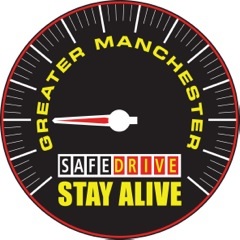2Wheels Greater Manchester works in close partnership with the following partners.
Safer Roads Greater Manchester
The Safer Roads Greater Manchester Partnership is a multi-agency partnership committed to reducing the numbers of deaths and injuries on Greater Manchester's roads, by changing attitudes and behaviour.
The Safer Roads Group has responsibility for countywide functions agreed with the Greater Manchester partners, including Greater Manchester Police as a key partner. These are listed below:
- Safer Roads Greater Manchester Partnership and GM Road Safety Strategy
- Casualty Data and Analysis- analysis of collision and casualty database identifying high risk casualty locations, contributory factors, behaviours, groups and trends
- Performance Monitoring - LTP Road Safety Delivery Plan, reviewing reduction performance, practices and processes
- Safety Camera Operation- co-ordinate the maintenance of safety camera housings, the installation and upgrade of digital safety cameras and provide and co-ordinate the strategic analysis of the effectiveness of the safety camera operation
- Coordination of SRGM Partnership activities.
- Marketing and Communication activity – encourage long-term behaviour change, increase awareness of the risks and consequences of unsafe behaviour and co-ordinate partner activities and complement campaigns and enforcement programmes.
- Resource Innovation Funded Projects- co-ordinating and evaluate applications submitted to SRGM for funding of small projects and interventions in line with priorities.
- Other additional responsibilities in relation to the GM Key Route Network (KRN) when required, based on GMCA Transport protocols.
- Engaging with other organisations with an interest in road safety at regional and national levels.
- Provide service delivery expertise and advice as TfGM specialists for road safety and safer roads matters; including road collision investigation.
- Road Safety Audits – provide a professional service in the delivery of road safety audits on new road schemes. An independent evaluation of a highway scheme during design and construction. For further information contact [email protected]
- Supporting and facilitating road safety work of GM Partners
Greater Manchester Police
Greater Manchester Police are focussed on reducing KSI’s on our GM roads, we run several operations throughout the year focussing on the FATAL4, inappropriate speed, seatbelt offences, using a mobile phone and drink and drug driving. These are often road side operations conducted frequently during the year however can also form a number of other initiatives using our fleet of liveried and unliveried traffic cars. We also follow the National Police Chiefs Council (NPCC) calendar and conduct operations nationally at the same time as other forces in England and Wales
The Safer Roads Targeting Team also run Two Wheel Campaigns twice a year to engage with riders of all types of motorcycles and also enforce poor road standards often caused by speed and riding inconsiderately.
BikeSafe in Greater Manchester was launched in September 2018, this is a unique way of engaging with motorcyclists who ride bikes of 125cc and above. Riders are given a morning interactive session discussing all the elements and skills required to improve and make your riding safer. They are then given the opportunity to have an observed rideout with one of our advanced Police motorcyclists, who will afterwards provide constructive feedback to your ride and if appropriate signpost you to further enhance your riding ability by undertaking advanced riding skills, with one of the many providers through the IAM, ROSPA or ERS.
Greater Manchester BikeSafe will hold nine workshops per year at various locations around the force.
The BikeSafe team also attend bike meets and events throughout Greater Manchester and in some cases locations outside of our force boundary to engage and encourage riders to ride sensibly and with care. It’s a great opportunity to show that we are passionate bikers too and have the same interests that they do.
https://bikesafe.co.uk/greatermanchester/
Greater Manchester Fire and Rescue Service
Safe Drive Stay Alive is a free project which targets young people aged 16–20 years, aiming to help them understand the huge responsibility involved when driving.
One of the key messages Safe Drive Stay Alive gives to young people is to look out for vulnerable road users including motorcyclists. Real stories are used during the performances to make our audiences think about how simple risk taking behaviours such as looking at a mobile phone message can lead to devastating consequences.
Click here to see the story of Joshua Holmes - who lost his life while riding on a dark night near Gisburn, Lancashire.
If you would like to know more, or book to attend a Safe Drive Stay Alive performance please visit our website be clicking on the logo here:
Transport for Greater Manchester
Transport for Greater Manchester (TfGM) has co-invested in CLOCS since 2019, and together they are driving promotion of this important safety standard. CLOCS will be integral to ensuring the construction industry, which remains one of the most dangerous industries in the UK, decouples risk from its activities. This is particularly important for the Greater Manchester city-region, as we see a projected rise in the number of vulnerable road users on our streets.

The CLOCS standard is the direct result of collaboration between the construction and fleet sectors to address shared issues. It draws together evolving and applied best practice from a number of standards, policies and codes of practice to provide one industry standard that can be implemented by regulators, clients, principal contractors and fleet operators.
The primary goals of the CLOCS standard are:
- Zero collisions between construction vehicles and the community
- Improved air quality and reduced emissions
- Fewer Vehicle journeys
- Reduced reputational risk
For more information, visit the CLOCS website, or email [email protected].
Road Safety & Public Health
Road traffic accidents (RTAs) are an important public health issue which needs to be prevented. The trend in RTA injuries and death is a real public health challenge locally, nationally and globally with approximately 1.35 million people dying each year.
Furthermore, more than half of all road traffic deaths are among vulnerable road users- pedestrians, cyclists and motorcyclists (World Health Organisation). Worryingly, the number of fatalities and serious injuries in the most deprived areas is higher than the least deprived.
This highlights that there are wider factors that influence the risk of people being involved in an accident and which individuals may not have an influence over.
In the UK, on average, five people die every day and countless more are seriously injured (Department of Transport). Unfortunately, after years of good progress our road safety record has stagnated in recent years.
The use of powered two-wheelers is increasing in popularity due to their low emissions, fuel economy, convenience in terms of ease of parking and their ability to beat congestion. There is also the fast-emerging market for electric powered motorcycles, scooters and pedal cycles. People using a powered two-wheeler can be 40 times more likely to die on the road than car drivers, with around 15% being young people, making up nearly 40% of all motorbike casualties (Transport for Greater Manchester).
Approaches to implement the rules of the road regulations and measures available to reduce road accidents is not always effective. We must therefore work together to create awareness across the board and in specific settings about what is available to prevent road accidents and also to impress a sense of responsibility to strengthen the message of road safety across GM.
Public Health supports road safety initiatives such as 2WheelsGM because the way we travel is an important social determinant of how healthy people are. Such schemes need to be integrated with wider public health work by considering it alongside the whole healthy places/place-making agenda.

